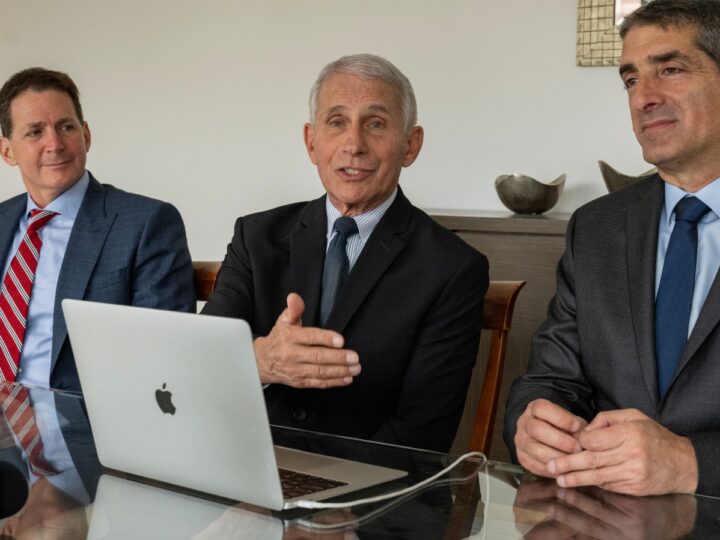Before predicting what Israel and the world will look like in a few months, it’s important to take a step back and reflect on what happened last year.
Covidhas created a strange economic environment, where sectors such as real estate and hospitality suffered significantly. High-tech, and in particular “big tech”– not just in Israel — has been the winner.
Technology is a major driver of Israel’s economy. And the industry has proven resilient as many companies have reinvented themselves in the face of global uncertainty.
Israel the Startup Nation epitomizes resilience, built on the ability of its people to face tough situations and make the best out of limited resources.
The novel coronavirus made statistics popular again. But hope is found in examples of how some people made the best of this difficult time. The personal stories below highlight the importance of maintaining a positive outlook and soldiering on during a crisis.

Tel Aviv resident Leksa Lev is an immigrant to Israel. She served in the IDF and currently works at a global tech company in business development and project management.
Lev found that Covid was a productive period of self-realization. For example, it turned out that she was much more of a homebody than she thought. During Covid, she found that she enjoyed housework and gardening, and even preferred home get-togethers over going to restaurants.
In terms of work, she learned to think less and do more, in that she made decisions quickly and calmly, knowing that tomorrow her decision may no longer be relevant. In addition, with some self-discipline the remote work format allowed her to better balance her work and personal life.
When asked what gave her strength during some of the darker days of the pandemic, she stated, “Maybe just knowing that everything ends. Thankfully, I hadn’t had really hard days, but being alone in the country, it was very difficult to realize that I cannot fly to see my family at any moment. My partner played a very important role during this year, being always in touch, sensitive and supportive.”
Companies that thrived

The events industry was decimated by the pandemic. Almost overnight, everything from small gatherings to global conferences were canceled. Startups that serviced this multi-billion-dollar industry had no choice but to figure out a pivot in order to survive.
“In March, we saw the business almost collapse — customers negated contracts, asking for refunds, etc. We had to control burn rate, and put25 percent of the company on temporary leave. It was very sad and challenging, but at the same time, we had to reinvent ourselves, and move fast,” says Alon Alroy, cofounder, CMO and CCO of Tel Aviv-based Bizzabo. https://www.bizzabo.com/
“We had to make a huge strategy shift, and by March 22 we were the first to market to launch a solution for virtual and hybrid events. Within a month, sales started coming in. By the end of June, we hired back everyone we could. We closed Q2 as the company’s best sales quarter with half of the sales team.”
Bizzabo’s pivot helped clients find a new way to engage with customers and keep their business alive. They already had an events management platform so they were able to capitalize on what they had previously built. This was a decision that was made in a day.
“Personally, we were always a bit hesitant about remote working,” Alroy says. “We believed our team needs to be together to maintain our strong company culture. We were proven wrong. Our core values were meaningfully more important than being physically together. Since the pandemic started, we hired 80 additional people who never stepped foot in our offices, and our team is stronger than ever before.”
We’re in it together

Michal Kabatznik, director of marketing and public relations at Diagnostic Robotics (as well as the co-founder and COO of Milestone Labs) believes that Covid taught her many lessons.
As someone with a deep passion for the integration of social impact and business, it was gratifying for her to see this become a bigger part of the mainstream conversation.
Across the world, employees dealt with the same curveballs (uncertainty, working from home, kids without a framework, worry about parents and elderly relatives) and many companies began taking the welfare of their employees and their communities seriously.
Covid also taught Kabatznik to appreciate the importance of pragmatism and doing what it takes to pay the bills and get through each day. Sometimes you find yourself on a different path than the one you’d ever thought you’d take and that’s okay!
“I gained strength from my relationships during Covid. From the close group of friends that made up my pod to renewing old bonds over Zoom and catch-up phone calls, I found comfort in the people I have held most dear throughout my life,” Kabatznik says.
“We all found a certain solace in the fact that we were all going through the same pandemic and relied on each other for support and strength. I think we are emerging stronger as a result.”
She is optimistic that we will be able to hold on to some of the humanity and compassion we have discovered in ourselves this year.
Her hope is that humility carries over into our actions in 2021 — that we approach everything we do with a greater sense of appreciation and reflection and not take things for granted.
Jonathan “Yoni” Frenkel heads a digital marketing agency, YKC Media, focused on engaging millennial and tech professionals through content. He’s been involved in the New York Israeli tech community for many years and previously held roles as a non-profit professional at the IAC DorChadash and AIPAC.
















